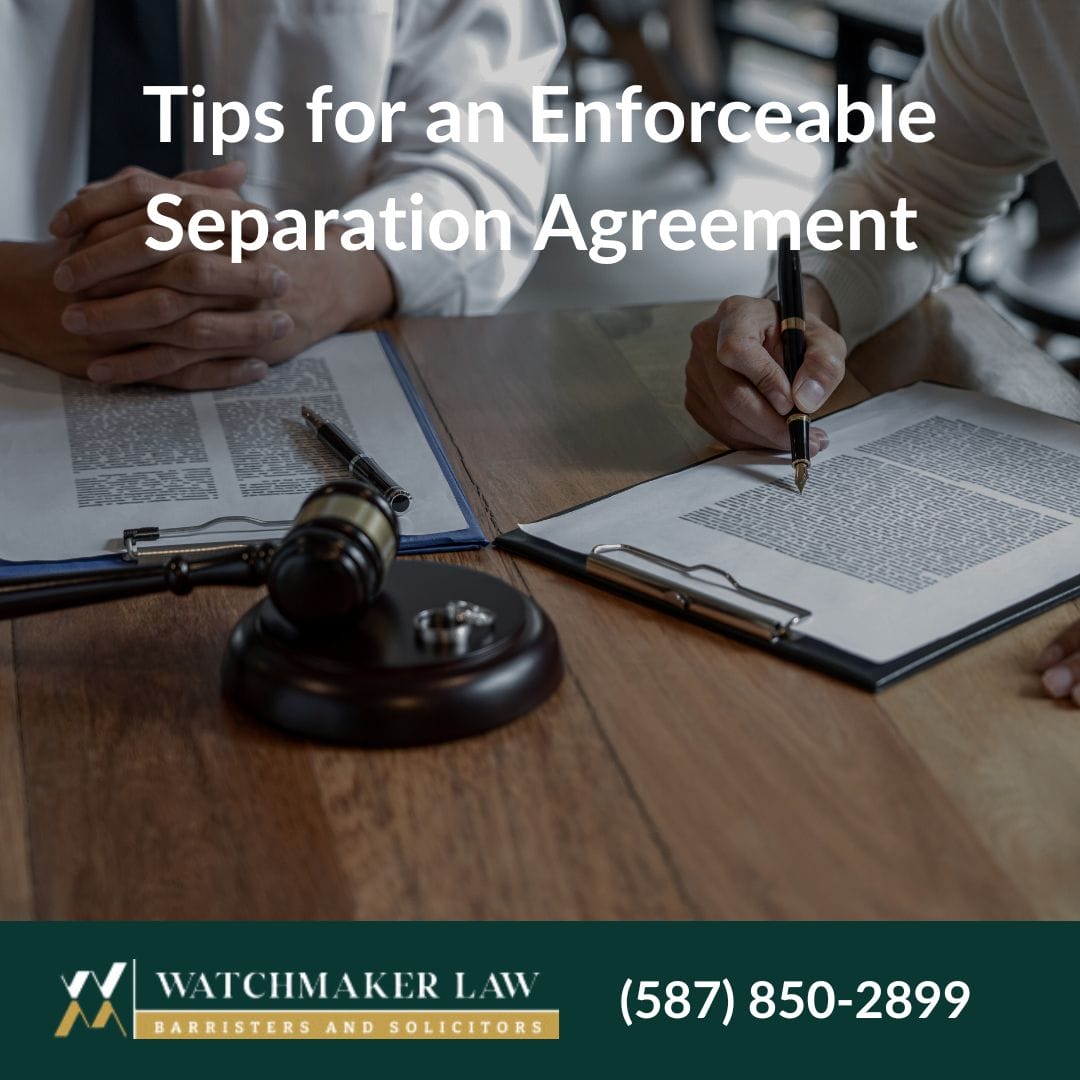Separation agreement is an agreement which allows spouses or partners to live separately when their relationship ends. This agreement can be entered into by the spouses even if they live in the same house. The main purpose of the agreement is to resolve their issues without resorting to litigation. When a separation agreement is signed, the parties can also incorporate the terms of the agreement into a court order. A separation agreement which is not properly executed, can be set aside by the court. To avoid this, certain terms are essential to make the separation agreement legally binding. Below are some tips that should be considered when drafting a separation agreement.
What Makes a Separation Agreement Legally Enforceable?
Voluntary Consent: For the agreement to be enforceable, both parties must voluntarily enter into the agreement. This means that neither party should be forced to execute the agreement out of fear, duress, or undue influence.
Full Disclosure: Full disclosure of finance, assets, debts is required to effectively deal with property. The use of the Notice to Disclose Document (can be found on the Court of King’s Bench website) is helpful as it provides detailed guide on disclosure of income, assets, and liabilities. This includes bank accounts, pensions, family home, vehicles, mortgages, credit cards, loans, and RRSP.
Some Key Issues
- Property Division and Debts: Property and debts can be effectively dealt with if there is full disclosure. If there are any debts, the agreement should show how the debts would be paid. The agreement should also clearly spell out who retains which property and if there are exemptions to some property, it should be stated.
- Parenting Arrangements: Where there are children involved in the marriage, the spouses must agree on the parenting arrangements that serves the best interest of the children. The parenting clause may deal with issues such as the time the child spends with each parent, decision making authority regarding education, religion, health as well as, entitlement of a parent to the child’s education, health.
- Child Support: Parents have a financial obligation towards their children so child support must be dealt with. Section 3 child support is the base child support payable each month to care for the child’s basic needs such as food, clothing, and shelter. This is determined by using the existing parenting arrangement, number of children and guideline incomes of the parents. Section 7 expenses may also be considered if there are additional needs for the child such as daycare expenses, health care and extra curricular activities.
- Spousal Support: Parties may agree to waive spousal support and acknowledge that each spouse is self supporting. However, if this is not the case, it must be spelt out in the agreement that one spouse is to pay spousal support to the other, the amount of support payable, the date on which the payment is to be paid and the duration for the payment of spousal support. For an agreement to be reached on spousal support, spouses must consider the length of cohabitation, functions of each spouse during the marriage, health education and respective ages of the spouses as well as childcare responsibilities if there were any children during the marriage.
Independent legal advice (ILA): The ILA clause should set out that each spouse received independent legal advice. This is very crucial as it is an assurance that each spouse understands the legal consequences of the separation agreement and has a full understanding of their rights and obligations. It is required that each party’s lawyer signs a certificate of ILA.
Clarity of the agreement: The agreement must be clear and simplified for the parties to understand. Ambiguous and conflicting clauses should be avoided to give clarity to the terms of the agreement.
Execution of the Agreement: The agreement should be signed by each spouse in the presence of their witnesses. Affidavit of execution by each witness sworn before a Commissioner for Oath and an acknowledgement by each spouse is also strongly recommended where there is a home transfer, family property division or spousal support waiver.
At Watchmaker Family Law, we’re here to guide you through each step with clarity and compassion. Contact us today to discuss how we can help you create a separation agreement that stands up in court and supports your future.




